
The legions of Rome were preeminent in a world where, more often than not, they won on campaign and in battle. This is the Roman military most recognisable to the general public, its legionaries resplendent in their fine armour and brightcrested helmets. And yet, behind the scenes, clandestine activities were always underway, often deep behind enemy lines. Today, some would be called special operations, performed by elite troops; their aim was to provide vital intelligence through stealthy reconnaissance, disrupt chains of command and lines of supply, and assassinate opposing decision-takers.
In the modern world such troops are called special forces, with students of Roman military history familiar with a whole raft of enigmatic names used to describe these elite warriors. Think of the frumentarii, speculatores, exploratores, protectores domesticii and areani. But were they really, as we now define them, special forces? In my recently published Roman Special Forces & Special Ops I tested whether any of the above, together with other specialist units, were actually special forces. This is a task more difficult than it sounds. For example, while the name is one of the most widely known military terms today, it is also one of the least understood. Names like the Special Air Service immediately spark attention and interest. Yet there is often a huge misunderstanding about the role special forces fulfil, especially by politicians keen for 'free lunch' solutions to complex foreign policy issues.
To determine whether these elite Roman units really were akin to modern special forces, I applied four key criteria:
■ Elite volunteers, chosen through a demanding selection process.
■ Uniquely trained for non-regular warfare, with special skill sets, a bespoke esprit de corps and access to specialist equipment.
Diese Geschichte stammt aus der Issue 118-Ausgabe von History of War.
Starten Sie Ihre 7-tägige kostenlose Testversion von Magzter GOLD, um auf Tausende kuratierte Premium-Storys sowie über 8.000 Zeitschriften und Zeitungen zuzugreifen.
Bereits Abonnent ? Anmelden
Diese Geschichte stammt aus der Issue 118-Ausgabe von History of War.
Starten Sie Ihre 7-tägige kostenlose Testversion von Magzter GOLD, um auf Tausende kuratierte Premium-Storys sowie über 8.000 Zeitschriften und Zeitungen zuzugreifen.
Bereits Abonnent? Anmelden
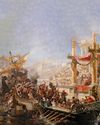
NAUMACHIA TRUTH BEHIND ROME'S GLADIATOR SEA BATTLES
In their quest for evermore novel and bloody entertainment, the Romans staged enormous naval fights on artificial lakes
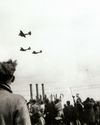
OPERATION MANNA
In late April 1945, millions of Dutch civilians were starving as Nazi retribution for the failed Operation Market Garden cut off supplies. eet as In response, Allied bombers launched a risky mission to air-drop food
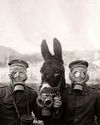
GASSING HITLER
Just a month before the end of WWI, the future Fuhrer was blinded by a British shell and invalided away from the frontline. Over a century later, has the artillery brigade that launched the fateful attack finally been identified?
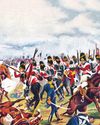
SALAMANCA
After years of largely defensive campaigning, Lieutenant General Arthur Wellesley went on the offensive against a French invasion of Andalusia

HUMBERT 'ROCKY'VERSACE
Early in the Vietnam War, a dedicated US Special Forces officer defied his merciless Viet Cong captors and inspired his fellow POWs to survive
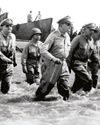
LEYTE 1944 SINKING THE RISING SUN
One of the more difficult island campaigns in WWII's Pacific Theatre saw a brutal months-long fight that exhausted Japan’s military strength

MAD DAWN
How technology transformed strategic thinking and military doctrine from the Cold War to the current day
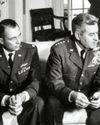
BRUSHES WITH ARMAGEDDON
Humanity came close to self-annihilation with the Cuban Missile Crisis, Broken Arrows’ and other nuclear near misses
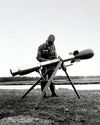
THE DEADLY RACE
How the road to peace led to an arms contest between the USA and USSR, with prototypes, proliferation and the world’s biggest bomb
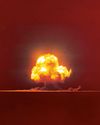
THE MANHATTAN PROJECT
Einstein, Oppenheimer and the race to beat Hitler to the bomb. How a science project in the desert helped win a war